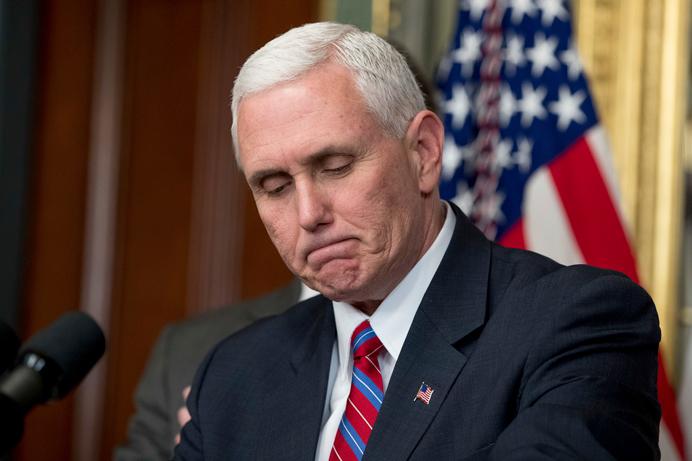Last week, several sources reported that Vice President Mike Pence used a private email account during his time as governor of the state of Indiana. According to the Washington Post, the private account was hacked last year.
Opponents were quick to raise eyebrows as the story sounds an awful lot like the Hillary Clinton email scandal that the Trump/Pence campaign spent months drilling into the minds of American voters. There was even a viral picture released of former Secretary Clinton reading the headline on her smartphone.
There are a number of notable differences between the Pence email scandal and Clinton’s, including whether Pence was wrong to have the email in the first place, but the similarities are specific enough that it merits some questions. The Daily Iowan Editorial Board, for example, wants to address the issue of hypocrisy in American government and politics.
Of the many trust-related issues in which the U.S. government is so frequently involved, hypocrisy often leads the charge. Politicians will talk about supporting the middle class, for example, while they maintain their six-figure salaries. The reality has, unfortunately, become that when many politicians make decisions, they act for themselves rather than the people they have been elected to represent.
It has become clear over the past few decades (if not over the course of American history) that U.S. politics is essentially a quid pro quo system that functions on the basis of politicians voting in favor of a bill or piece of legislation in exchange for a vote for their own legislation. The system does not seem to run on honor or the personal beliefs touted in front of voters.
When members of Congress are acting not based on their conscious but rather on personal gains, they undermine the definition of a representative democracy. It is, perhaps, too broad to address all of Congress’ transgressions based on Pence’s email hypocrisy. However, trust is a multifaceted trait that can be far more easily broken than it can be built. When one domino falls, the whole chain goes with it.
As Vice President, Pence is a heartbeat (or one bad decision, in the case of this presidency) away from the Oval Office. An email scandal — even if smaller than Clinton’s — is more than enough to question Pence’s motivations. But his email scandal has been undermined by a year that has been so full of political scandals, resignations, and leaks. Although it’s often been referred to in satire and comedy, it’s almost as if the American public is truly no longer surprised when politicians lie.
As U.S. citizens, we want our politicians to be ruthless in the defense of our country and our rights. We want them to be willing to make the hard decisions and do the things most Americans simply wouldn’t have the stomach to do. However, U.S. citizens shouldn’t have to accept lying and hypocrisy to receive sternness and action in return. The DI Editorial Board implores American politicians — as high as the president and vice president — to keep the quid pro quos with in the halls of Congress. Stop playing games with the trust and confidence of the American people.



